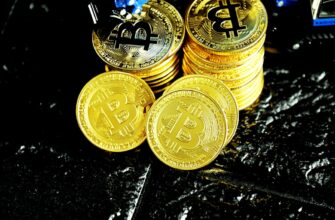## Introduction: Understanding Crypto Titans
When exploring cryptocurrency investments, comparing **XRP and BTC** (Bitcoin) is essential. These two giants represent fundamentally different approaches to blockchain technology. Bitcoin pioneered decentralized digital currency, while Ripple’s XRP targets institutional cross-border payments. This guide breaks down their technology, performance, and real-world utility to help you navigate the **XRP BTC** landscape.
## What is Bitcoin (BTC)?
Bitcoin, launched in 2009 by Satoshi Nakamoto, is the first decentralized cryptocurrency. Key characteristics:
– **Proof-of-Work Consensus**: Miners solve complex puzzles to validate transactions
– **Fixed Supply**: Capped at 21 million coins to combat inflation
– **Store of Value**: Often called ‘digital gold’ due to scarcity
– **Public Ledger**: Fully transparent transaction history on the blockchain
BTC revolutionized finance by enabling peer-to-peer transactions without intermediaries.
## What is Ripple (XRP)?
XRP is the native cryptocurrency of RippleNet, designed for enterprise payment solutions. Unlike BTC, it focuses on:
– **Speed**: Settles transactions in 3-5 seconds vs. Bitcoin’s 10+ minutes
– **Cost Efficiency**: Average fee under $0.01 compared to BTC’s variable fees
– **Centralized Governance**: Managed by Ripple Labs, though XRP ledger is open-source
– **Supply**: 100 billion XRP created at launch, with gradual releases
XRP aims to replace SWIFT for international bank transfers, partnering with institutions like Santander.
## XRP vs BTC: 5 Critical Differences
Understanding these contrasts clarifies their unique value propositions:
1. **Purpose**
BTC: Decentralized digital currency/store of value
XRP: Enterprise payment settlement asset
2. **Transaction Speed & Cost**
XRP: 1,500 TPS at near-zero cost
BTC: 7 TPS with higher energy fees
3. **Consensus Mechanism**
BTC: Energy-intensive Proof-of-Work
XRP: Efficient Unique Node List (UNL) protocol
4. **Supply Dynamics**
BTC: Deflationary (21M cap)
XRP: Fixed supply with managed escrow releases
5. **Regulatory Status**
BTC: Widely recognized as commodity
XRP: Ongoing SEC litigation regarding security classification
## Market Performance: XRP BTC Comparison
Historical data reveals divergent trajectories:
– **Bitcoin Dominance**: Holds ~50% of total crypto market cap (as of 2023)
– **XRP Volatility**: Heavily influenced by Ripple’s SEC lawsuit developments
– **All-Time Highs**:
BTC: $69,000 (Nov 2021)
XRP: $3.84 (Jan 2018)
– **Adoption Metrics**: BTC leads in merchant acceptance; XRP excels in institutional payment corridors
## How to Buy and Trade XRP and BTC
Follow these steps to invest:
1. **Choose an Exchange**: Coinbase, Binance, or Kraken support both
2. **Fund Your Account**: Deposit fiat via bank transfer or card
3. **Place Orders**: Market orders for instant execution; limit orders for target prices
4. **Secure Storage**: Transfer to hardware wallets (Ledger/Trezor) for long-term holdings
**Pro Tip**: Monitor BTC dominance charts—when BTC rises, altcoins like XRP often follow.
## Future Outlook: Evolution and Challenges
### Bitcoin
– Scaling solutions like Lightning Network
– Growing institutional adoption as inflation hedge
– Regulatory clarity in major economies
### XRP
– Resolution of SEC case critical for US exchanges
– Expansion of RippleNet’s banking partnerships
– Potential CBDC interoperability developments
Industry analysts predict both will coexist, serving different financial niches long-term.
## Frequently Asked Questions
### Is XRP better than Bitcoin?
Neither is universally ‘better.’ XRP excels for fast payments; BTC dominates as a value store. Choose based on your goals.
### Can XRP overtake Bitcoin in market cap?
Unlikely short-term. BTC’s first-mover advantage and $500B+ market cap create significant barriers. XRP would need 20x growth to match BTC’s current valuation.
### Why is XRP cheaper than Bitcoin?
Supply difference is key: 100 billion XRP vs 21 million BTC. Price reflects scarcity, adoption, and perceived value.
### Are XRP and Bitcoin competitors?
Not directly. They target different markets: BTC for peer-to-peer value transfer; XRP for institutional settlement. Some overlap exists in crypto portfolios.
### How does regulation affect XRP BTC prices?
BTC benefits from clearer regulatory frameworks. XRP remains sensitive to SEC case outcomes—positive rulings could trigger rallies, while setbacks cause selloffs.
## Final Thoughts
Understanding the **XRP BTC** relationship is crucial for informed crypto decisions. Bitcoin remains the benchmark for decentralized value storage, while XRP offers specialized efficiency for global payments. As blockchain technology evolves, both assets may play complementary roles in the future of finance. Always research regulatory developments and diversify investments accordingly.








